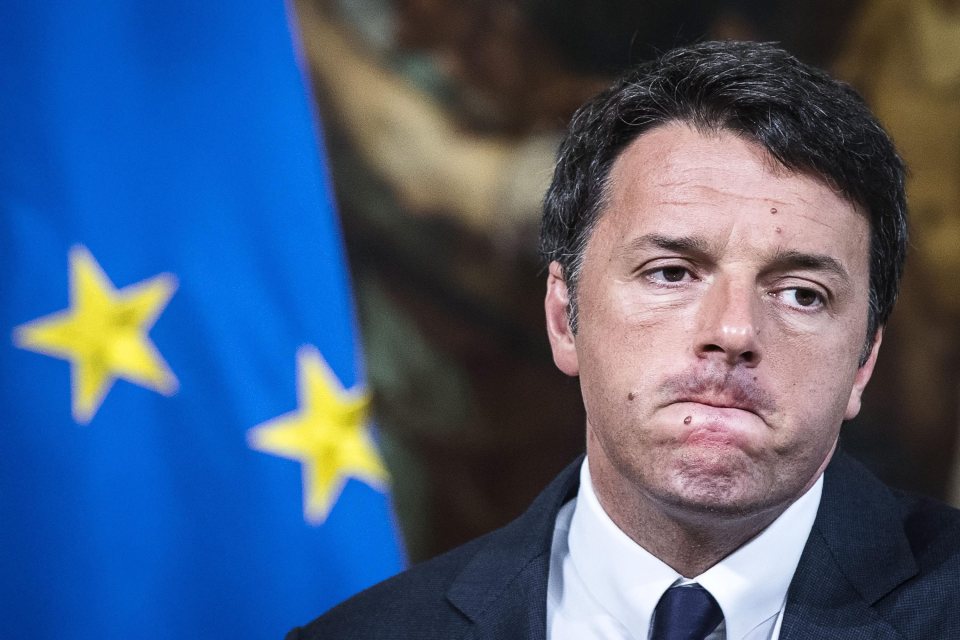Italian Prime Minister Matteo Renzi has resigned after suffering a heavy defeat in a referendum over his plan to reform the constitution.
In a late-night news conference, he said he took responsibility for the outcome, and said the No camp must now make clear proposals.
With most ballots counted, the No vote leads with 60% against 40% for Yes.
The turnout was nearly 70%, in a vote that was seen as a chance to register discontent with the prime minister.
"Good luck to us all," Mr Renzi told reporters. He said he would tell a Cabinet meeting on Monday afternoon that he was resigning, and then tender his resignation to the Italian president after two-and-a-half years in office.
Mr Renzi said the reforms he proposed would have cut Italy's bureaucracy and made the country more competitive.
But the referendum was widely seen as a chance to register discontent with the prime minister.
EU leaders won't have slept much on Sunday night. Angst about Italy makes an uncomfortable bedfellow and there's plenty for them to worry about. Particularly in Brussels. Prime Minister Renzi was the only premier left in Europe with a vision for the EU's future. Angela Merkel is too busy crisis-managing while much of France is in thrall to Front National eurosceptics.
But Matteo Renzi is no more. The self-styled reformer with his promise to stabilise politics and kick-start the Italian economy has managed quite the reverse.
Italy wakes up on Monday to the threat of a banking crisis, political turmoil, and a group of anti-establishment populists banging on the doors of government. Eurozone beware and EU be warned. Italy is the euro currency's third largest economy and it's in for a bumpy ride. And there are more unpredictable votes to come in 2017: in France, Germany the Netherlands and perhaps here in Italy too.

The No vote was supported by populist parties, and the referendum was regarded as a barometer of anti-establishment sentiment in Europe.
The populist Five Star Movement says it is getting ready to govern Italy now that Mr Renzi is resigning. "Starting tomorrow we'll be at work on a Five Star government," one of its leaders, Luigi Di Maio, said.
The movement, led by comedian Beppe Grillo, spearheaded the winning No campaign.
Opposition leader Matteo Salvini, of the anti-immigrant Northern League, called the referendum a "victory of the people against the strong powers of three-quarters of the world".
There has been an immediate reaction from right-wing leaders in Europe.
The leader of Front National in France, Marine Le Pen, tweeted her congratulations to the Northern League.
"The Italians have disavowed the EU and Renzi. We must listen to this thirst for freedom of nations," she said.

The euro fell against the dollar immediately after the exit polls came out.
There have been growing concerns over financial stability in the eurozone's third largest economy.
What a No vote means
The No campaign in Italy has been spearheaded by the anti-establishment Five Star Movement, led by Beppe Grillo.
It wants a referendum on whether Italy should keep the euro.
Populist parties, including the Five Star Movement and the anti-immigrant Northern League.
The referendum comes in the wake of the Brexit vote in the UK in June, and coincides with the rise of the anti-immigrant Front National in France and populist parties elsewhere. It also comes less than a month after the election of Donald Trump in the United States.
Some 50 million Italians have the right to vote in the referendum - many voters are fed up with years of economic stagnation.
Â





